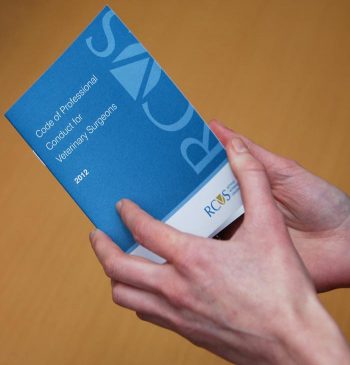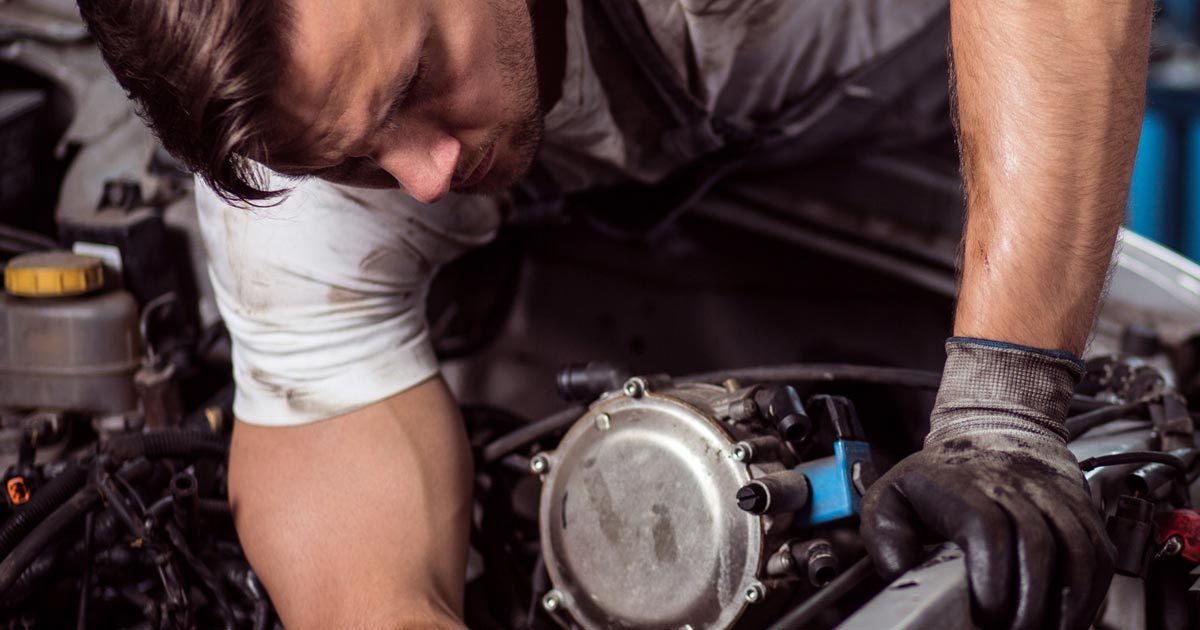“Profession” – here’s what the Oxford English Dictionary has to say about the subject:
“[noun] A paid occupation, especially one that involves prolonged training and a formal qualification.”
And on “professional”, it says the following:
“[adjective] Worthy of or appropriate to a professional person; competent, skilful, or assured.”

That doesn’t cover all of it, of course – the royal college has more to say, but I haven’t got space to type out the whole of the RCVS Code of Professional Conduct for Veterinary Surgeons here.
In many ways, my guide to recognising unprofessionalism is rather similar to Justice Potter Stewart’s simple definition of pornography in 1964: I know it when I see it.
Vets behaving badly
Certainly, on the few (I hope, at least) occasions I have behaved unprofessionally (mostly on social media), I have known about it, and I still feel embarrassed and ashamed to this day about them. But here’s the thing about professionalism – despite the royal college doing its best, you can’t force it on someone, because different vets can have a very different idea of what behaving in a professional manner is.
Here’s my point – the point of this blog: it’s extremely unlikely that any practising vet considers him or herself to be completely “unprofessional”. Nevertheless, it’s quite possible to get through a day, a week, a year, or even a career as a vet behaving in a manner I (and, I think, many of us) would consider to be entirely unprofessional, and to still end that career considered to be a “wonderful vet” with a loyal following of grateful owners.
You may already understand what I’m talking about, but because this involves personal opinions and definitions of “professional”, I’ll try to elaborate further…
Under the bonnet
I know almost nothing about cars. I am vaguely aware of the concept behind an internal combustion engine (because I’m a history geek), but detailed knowledge of what goes on under my bonnet is as mysterious to me (actually, quite a lot more mysterious) than the reactions that drive nuclear fusion within a star.
Maybe I am missing a gene somewhere, but the make and model of car I drive is about as interesting to me as the make and model of washing machine I have. Consequently, when a little red light appears on my dashboard, or my car starts making a peculiar noise I can no longer realistically drown out by turning the radio up, I have to take it to a mechanic and, because I know zip-all about cars, I have to place my trust in them and hope they know what they’re talking about, because I certainly don’t.
Intimidated by my lack of knowledge, I find taking my car to be repaired to be a stressful and worrying experience, hoping I’m am not going to be fleeced by one of these “cowboys” I hear about. I am in no position to judge the knowledge-base or professionalism of the mechanic. All I can do is make a decision on a human level about how much I trust them. If they earn my trust, I will probably keep going back to them. If they say my car is broken beyond repair, I will probably believe them, and be grateful for their honesty.

Gaining trust
You can probably see where I’m going with this. It’s a sad truth of our job that the regard and trust clients place in you has almost nothing to do with how good a medic or surgeon you are. It can be easy to listen to your clients when they tell you how good a vet you are – they are right, to some extent at least, because communication is a huge part of the job.
But it’s not the whole of the job, and if all you’re interested in is having clients trust you, you can make it through a whole career doing just that, even though you do the same old things you always did to the animals, never have your actions exposed to scrutiny, and never keep up with new techniques.
Sure, you can go to CPD – you have to, right? – but confirmation bias is a wonderful thing. I have attended lectures with fellow vets who managed to draw entirely different conclusions from the talk than I did, and who seem oblivious to the fact the lecturer was explicitly saying some of the things my contemporary did were potentially negligent.
Is your best enough?
It’s easy to slip into the mindset. General practice is hard, and often it is a struggle to get through the day. If you don’t try to improve yourself, you can make it through fine doing what you always did.
Every so often a patient will die and you won’t know why, but animals are unpredictable, and even patients of the most up-to-date professional vet in the world (like that one off the telly) unexpectedly die too, so they can’t know all that much, after all. Maybe they will faff about with all that postmortem nonsense, but you never felt the need to, and your clients trusted you when you gave them your best guess, so it doesn’t really matter. You did your best, right?
We all try our best. We wouldn’t be in the job if we didn’t. But sometimes, our idea of “best” isn’t the same as everyone else’s.
Held to account
Working like a dog (if you’ll pardon the expression) and pulling in more money than other vets doesn’t equate to acting professionally, and it can be (I think) very hard to see and accept that your actions are no longer the same as those of your peers.
I am fortunate to be married to an extremely professional vet who lets me know, in no uncertain terms, if she disagrees with what I’m doing, or if she reads my notes and disputes my reasoning. I am fortunate because it’s good to have to defend your clinical judgement, and to change your opinion if you find that you can’t.
The danger can come when other vets and nurses in the practice become more accepting of your erratic behaviour (“They’re doing a ‘quick’ dental with extractions under ‘safe’ sedation in an 18-year-old dog? Typical. I don’t want to know about it.”) and don’t even try to talk to you about it, but instead quietly despair and vow they will never let it happen to them.
Self assessment
Our clients can’t judge us on our professionalism – that’s up to us.
We have a duty to offer them and their animals the best care and service we possibly can. We all want to relieve suffering. Professionalism is a formal way of making sure we go about it the same way; the way that has proven to be – or at least has been judged to be by people who have looked into it more than we have – the most effective.
Being a vet is about more than being respected by our clients; that’s the easy part. It’s about making sure that their trust in us isn’t misplaced.

Leave a Reply